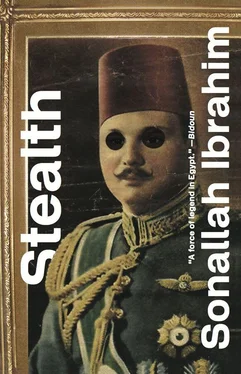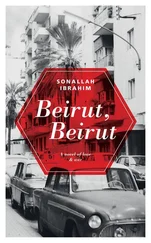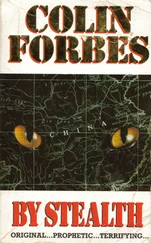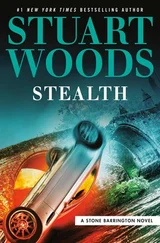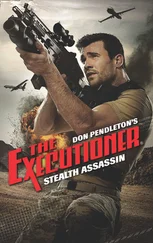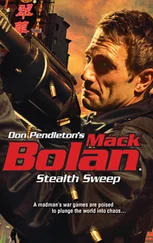“Wow. And the slides?”
“Twenty piastres each.”
We go down to the playground. The school guard calls my name. He gives me a roll of paper, saying that a black man on a motorcycle brought it for me. The sandwich that I forgot. The children play with a ball made of socks. I watch them while I gulp down the sandwich. We mark the two goals out with pieces of brick. We gather around Magdi and Hany. They flip a coin in the air. King or writing? Hany wins by taking king. He starts to choose the members of his team. He studies our faces. He points with his finger. The chosen one runs to his side, all proud. Magdi follows. My eyes meet his as he looks us over. His eyes keep moving and settle on the boy next to me. The choosing of the two teams goes on. I am the only one left. Each captain counts his team members. Magdi’s team needs another player. As though surrendering, he waves me over.
The bell rings announcing the end of recess. We go back up to class. The Arabic teacher comes in. He explains transitive verbs to us. He is stunned by how slow I am. A knock at the door. My heart starts to pound. The teacher calls out: “Enter.” The geography teacher enters carrying a long cane. Standing behind him there is Lamae, he is good-looking with his thick lips and rosy face. The teacher steps over towards my desk, shaking his cane. His shoes are fat and bulging, like they’re about to explode from both sides. My heartbeat get stronger, but he moves on past me and goes to the back rows where the older students and the ones who have been held back are sitting. He picks out one with a fat head. He drags him to the front of the class. He rains blows down on him with the cane without saying a word, then he calls him “ill-mannered” and “badly raised.” The boy doesn’t make a peep. He just takes the blows quietly. Then he settles back behind his desk. A loud silence settles over all of us. The Arabic teacher doesn’t say anything. The geography teacher leaves. We start our lesson over again. We read out of our textbook a story called: “A Strange Rescue From Certain Death.” The teacher gives me a hard time for my mistakes in pronunciation.
The class ends. None of us say anything about what happened. We go down to the art classroom. The teacher is dark-skinned, medium height, and skinny. His necktie is loose. He’s jumpy. He has a copy of the picture magazine al-Musawwar in his hand. He reads us the story of a thirteen-year-old boy from the magazine. “The boy tells his father, ‘It’s our shame that we stay here in Damascus while Palestine is burning. I’ll get together a team of commandos from my friends, and we’ll all get together in the town square.’ The father admired his son’s precocious manhood, so he kissed him and said, ‘We’ll go together, my son. And let the first volunteers in your team be your younger brothers.’ ”
He continues reading as he walks around the room: “The father joined the rescue operation forces and the son put together a team of thirty children. They snuck their way from the border all the way to Jerusalem. They attacked a Jewish stronghold in the King Dzavid section of the city. The youngest of them was infiltrating mine fields and setting them off. They almost took control of three houses that Jewish forces had held using assault rifles. They managed to blow up two of them. When the boy attacked the third, holding his rifle in one hand and a grenade in another, he shouted: ‘You Haganah, if you’re men, show your faces and fight me man to man.’ No one dared come out, but a single bullet shot out and lodged in his back, killing him once and for all.”
The teacher goes to the blackboard, and says: “Everyone draw what you liked best from the story.” I draw the father and his son. The picture doesn’t seem very good to me. I erase the whole thing. I draw an open field with plants and trees. I try to figure out what mines look like and where I should put them. The teacher walks around behind us. He looks over what we draw. He leans over and draws me a tree. He pats me on the back to encourage me. I draw a boy at the edge of the field.
The teacher asks me and three others to stay after class. He takes us out to the school’s garden. We sit down on a green grassy spot under some trees. He promises that he is going to turn us into artists. He tells us to draw a branch of a tree with all its leaves. I carefully trace the shape of the branch and the leaves with my pencil. I fill up the whole page. I go back over the lines with the ink pen. He says: “That’s enough for today.”
I take my satchel and leave the school. I go along the street that leads to the Jewish school. I walk along the colored gravel. I stop at the corner. I look to the left. The branches of the trees are bare. I step over red and yellow flowers. I make it to the pavement in front of our old house. The windows of our apartment are open. You can see somebody’s shadow moving. A steamroller parks up a few steps ahead. A side of the road has been paved with asphalt. The smell of burning tar. A pile of gravel is in front of the house. The stones shine in the moonlight. We stand on top of it. We rub stones together. Colored sparks come off them. My father calls me and I rush back inside. I go to the bathroom first. I wash my face and my feet. I go and find him at the window. The darkness is lifting. Mother is singing as she brings in coffee.
I go back to where the street begins and from there to the square. I cross it, passing in front of Hajj Abdel ’Alim’s shop. I go back into the alley. I see that father is standing on the balcony. The wide woolen scarf is wrapped around his neck. The big woolen cap covers his head. His neck is twisted towards the top of the alley. As soon as he sees me, he goes back in. I go up the stairs. I open the door with my key. I go into the room. He stands next to the wardrobe, holding the book The Great Star of Knowledge. He doesn’t talk to me.
I put my satchel on the desk. I take out my notebooks. Stacks them up. I watch him from the corner of my eye. He turns around. He opens the book and lays it on the bed. He leaves the room. I steal a look through the crack in the door. I can hear him making dinner in the kitchen. I take the key to our room out of my pocket, and push it into the keyhole. I go over to the bed, and bend over the book. A small booklet is tucked inside its cover. I pick it up to read the name of it. I’m expecting something like “How to Punish an Abusive Child.”
Full Male Potency. I flip through the pages, but I don’t understand a thing, so I put it back in its place.
I go out to the hall. I am looking for him. There is no sign of him in the bathroom or the kitchen. I go back to the hall. The door to the skylight is closed. I go over to Mama Tahiya’s room. The door is closed. I look through the keyhole. As it has been, without a piece of furniture. I go around the table. The door to the guest room is closed. I look through the keyhole. He is sitting on the couch facing me. His head is bowed and he is studying the floor. He raises his hands to his face. Suddenly, he breaks into tears and starts sobbing like a child.
He finishes praying the Friday prayer, on top of the bed. He goes back to his corner with a frown, sitting by himself next to the wall. The full-length prayer beads are in his hand. He sticks on the name “the Benevolent,” repeating it.
I hear noise in the alley. I put on my glasses and rush to the balcony. He raises his voice, reciting the names of God without turning to me. His voice is like a warning not to make any noise.
I stop behind the glass pane. The children have paper kites. They’re floating up in the air over the alley in all different sizes and colors. He makes me an orange-colored kite. I go up to the roof of the house with the other children. Everyone has his own kite with him. We hold tight to the string. We throw them in the air. They fly up high.
Читать дальше
